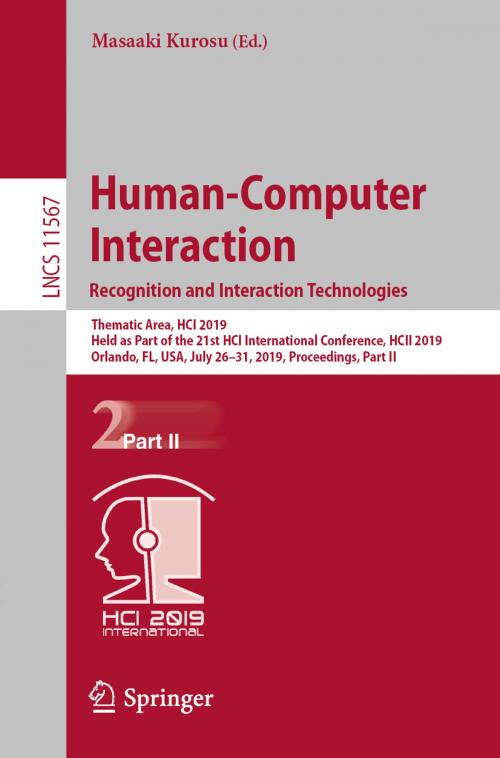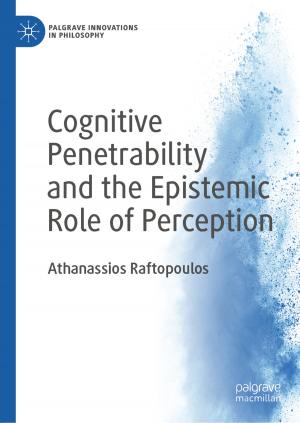Human-Computer Interaction. Recognition and Interaction Technologies
Thematic Area, HCI 2019, Held as Part of the 21st HCI International Conference, HCII 2019, Orlando, FL, USA, July 26–31, 2019, Proceedings, Part II
Nonfiction, Computers, Advanced Computing, Programming, User Interfaces, Information Technology, General Computing| Author: | ISBN: | 9783030226435 | |
| Publisher: | Springer International Publishing | Publication: | August 20, 2019 |
| Imprint: | Springer | Language: | English |
| Author: | |
| ISBN: | 9783030226435 |
| Publisher: | Springer International Publishing |
| Publication: | August 20, 2019 |
| Imprint: | Springer |
| Language: | English |
The 3 volume-set LNCS 11566, 11567 + 11568 constitutes the refereed proceedings of the Human Computer Interaction thematic area of the 21st International Conference on Human-Computer Interaction, HCII 2019, which took place in Orlando, Florida, USA, in July 2019.
A total of 1274 papers and 209 posters have been accepted for publication in the HCII 2019 proceedings from a total of 5029 submissions.
The 125 papers included in this HCI 2019 proceedings were organized in topical sections as follows:
Part I: design and evaluation methods and tools; redefining the human in HCI; emotional design, Kansei and aesthetics in HCI; and narrative, storytelling, discourse and dialogue.
Part II: mobile interaction; facial expressions and emotions recognition; eye-gaze, gesture and motion-based interaction; and interaction in virtual and augmented reality.
Part III: design for social challenges; design for culture and entertainment; design for intelligent urban environments; and design and evaluation case studies.
The 3 volume-set LNCS 11566, 11567 + 11568 constitutes the refereed proceedings of the Human Computer Interaction thematic area of the 21st International Conference on Human-Computer Interaction, HCII 2019, which took place in Orlando, Florida, USA, in July 2019.
A total of 1274 papers and 209 posters have been accepted for publication in the HCII 2019 proceedings from a total of 5029 submissions.
The 125 papers included in this HCI 2019 proceedings were organized in topical sections as follows:
Part I: design and evaluation methods and tools; redefining the human in HCI; emotional design, Kansei and aesthetics in HCI; and narrative, storytelling, discourse and dialogue.
Part II: mobile interaction; facial expressions and emotions recognition; eye-gaze, gesture and motion-based interaction; and interaction in virtual and augmented reality.
Part III: design for social challenges; design for culture and entertainment; design for intelligent urban environments; and design and evaluation case studies.















